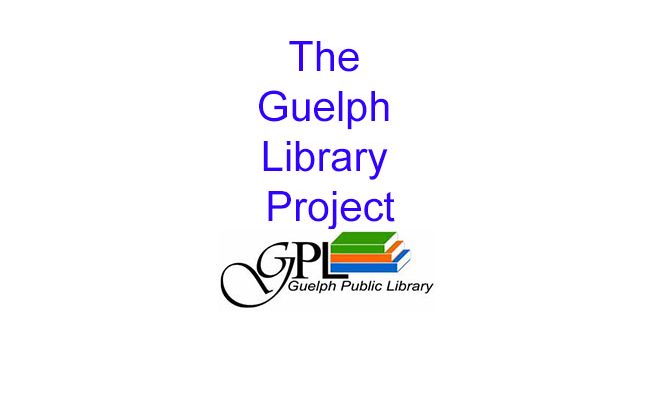Learn about the benefits of constructing a multi-year internship from a MLIS student's perspective.

The Guelph Library Project: An Update
The project continues. For the students, the issues have become more complex and vexing. Differing perspectives have been put in stark relief. Initial perspectives are being challenged.
In other words, it’s been a wonderful learning experience.
To recap, The Guelph Public Library Project arises from a course I’m teaching at the University of Guelph (see an earlier article in Open Shelf). All the students are in their first year. Their objective is to examine the state and nature of the downtown public library, and recommend future directions (i.e. should the city build a new library).
What have the students done so far?
They have read and discussed key background documents. They toured the downtown library (an experience they won’t soon forget; the facility is in tenuous shape). In small groups the students have interviewed some key individuals (former mayor, current mayor, a city counsellor, and CEOs of the Halifax Public Library and Cambridge’s Idea Exchange). They brainstormed key themes that are at the heart of the decision to build or not to build.
They have also developed four scenarios to around the future of the downtown public library:
1) status quo
2) renovate the current library as a branch and establish an offsite facility for support services,
3) continue with the proposed new library
4) develop a new vision for the library.
An important part of the course was to introduce the students to opinion leaders about the evolving nature of libraries. While some of this was done through documents or interviews, we were delighted to have Steve Kraft (CEO, Guelph Public Library), Wendy Newman (library advocate extraordinaire) and Virginia Gillham (Chair of the Friends of the Guelph Public Library) speak to the class in person. Their vision, energy and commitment were palpable to the students.
What have students wrestled with? Here are some key questions they have asked and are seeking to resolve:
Given the many city priorities and needs, is a new library high enough on the list?
If the city has been discussing a new library for nearly 20 years, does this suggest a lack of alignment between what the Library is proposing and what the citizens want in a library?
Does the public-private partnership proposed for the new library compromise the mission of the library?
Is a central library the most effective solution to the provision of library services? Are there other models that would work better and cheaper?
What is the impact of technology, and specifically the internet, and how is it reflected in the vision and plan for the new library?
For many students, perhaps all, asking these sorts of questions about a library is a new perspective. As library users they thought of the library in a particular way. As “consultants” they have adopted a broader, more critical approach.
During their deliberations (which included some critical comments on the image the library was portraying), the Guelph Public Library released a new branding. The students were pleased.

One of the central realizations for the students was the critical alignment necessary among library leadership, municipal politicians, and the citizens of Guelph. While this may be obvious to those of us in the field, for the students it was a recognition of the complex relationships required to advance public initiatives.
The work of the students continues. The final report and recommendations are on track to be finished by the end of the semester. We will post these in the January 15th release of Open Shelf.
Mike Ridley is the Editor-in-Chief of Open Shelf. He is a Librarian and Instructor (First Year Seminar program) at the University of Guelph.


